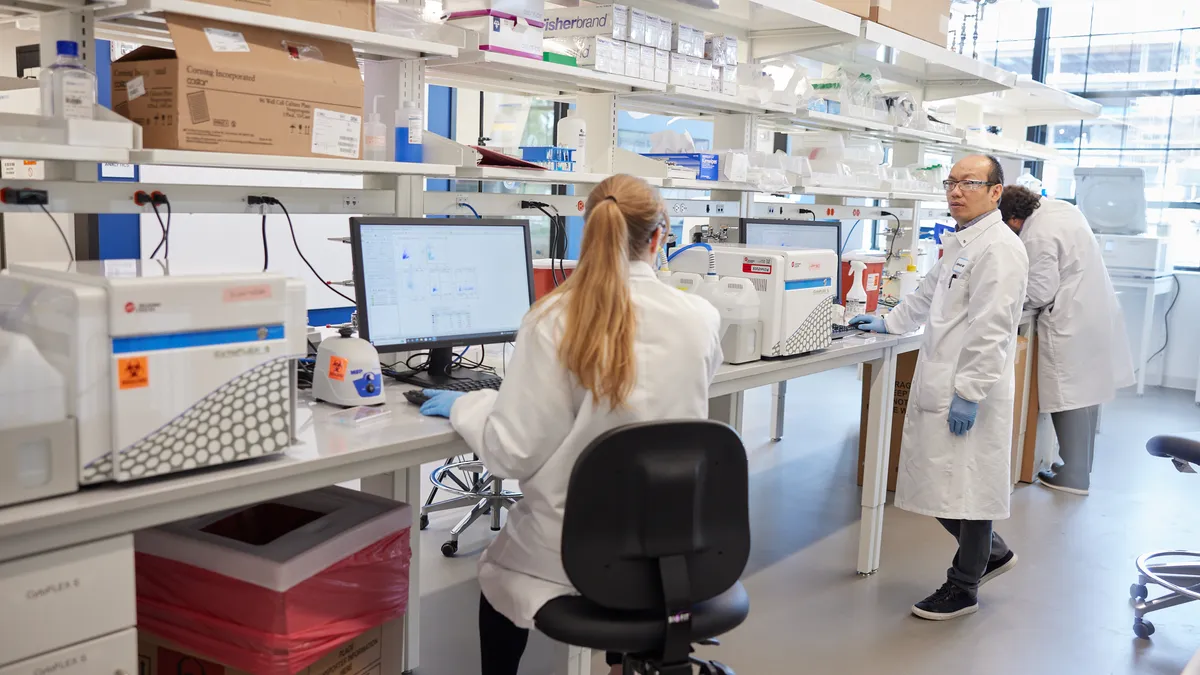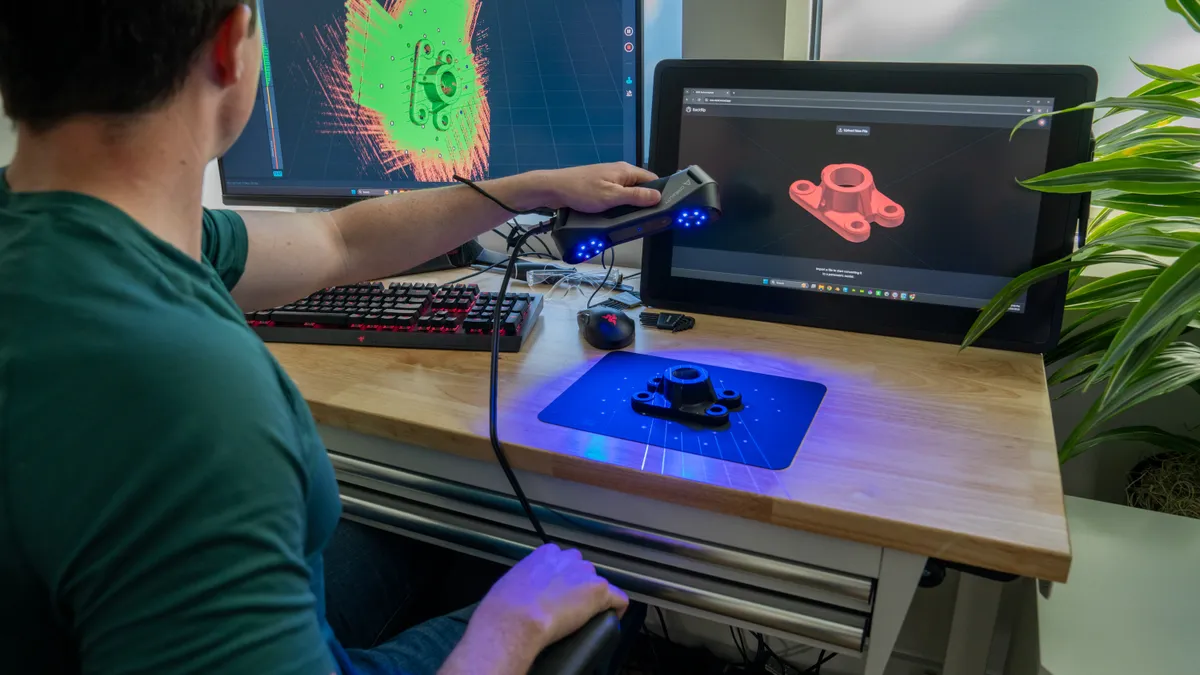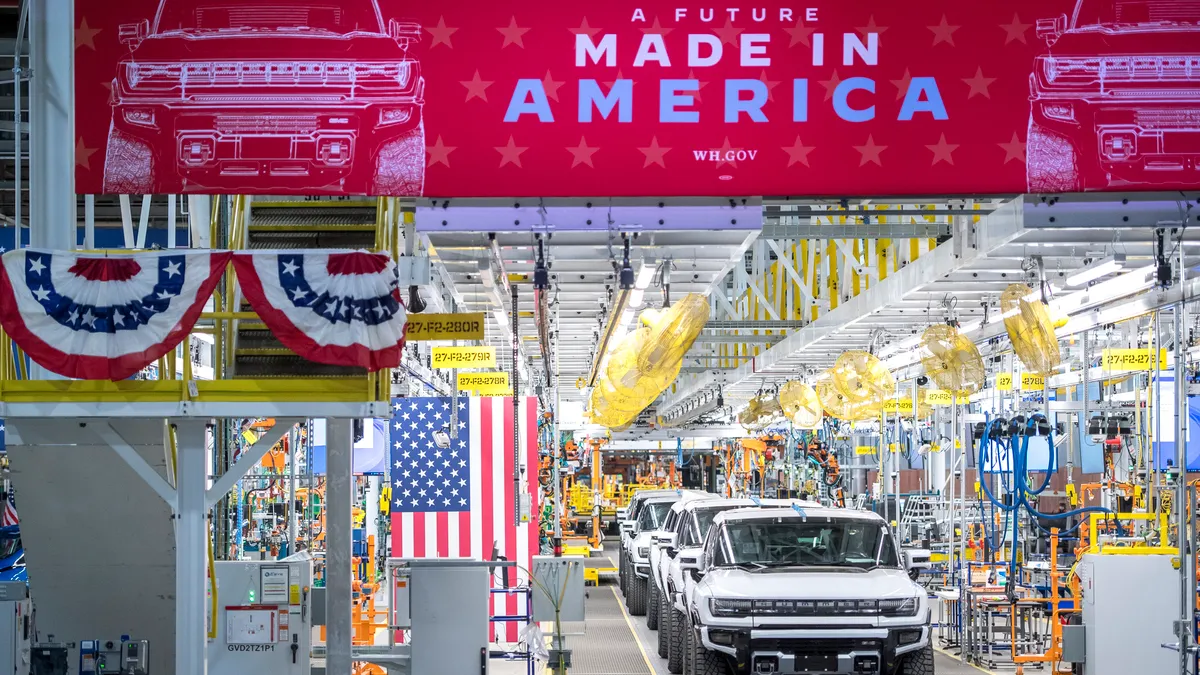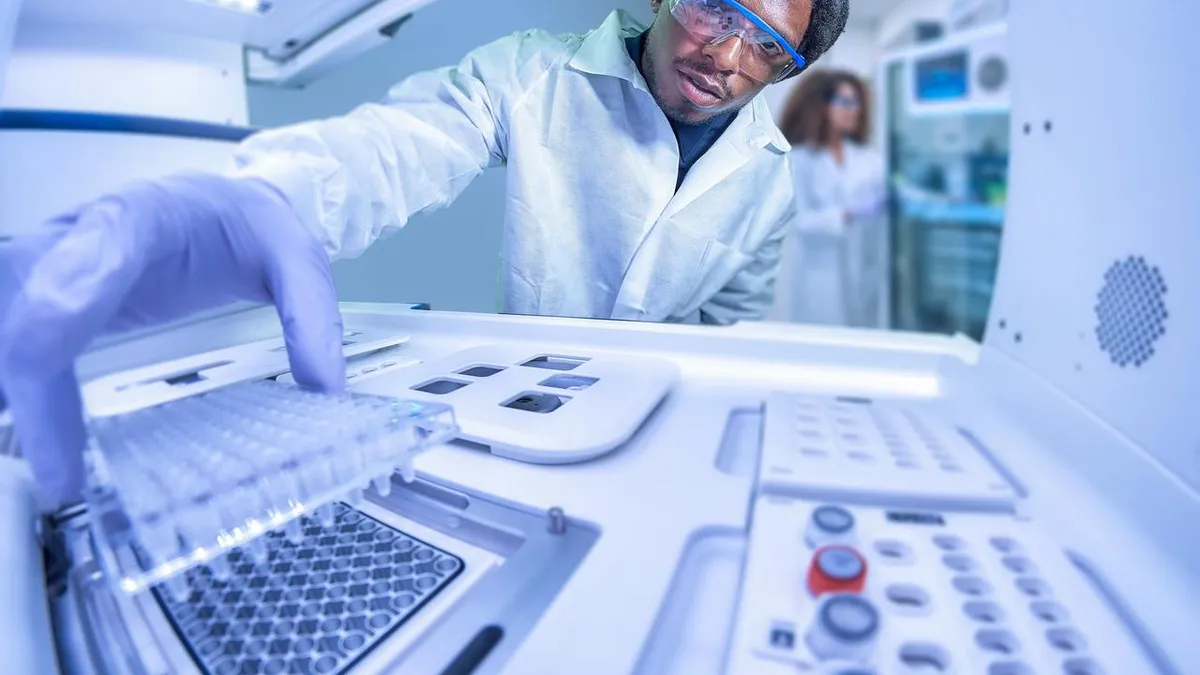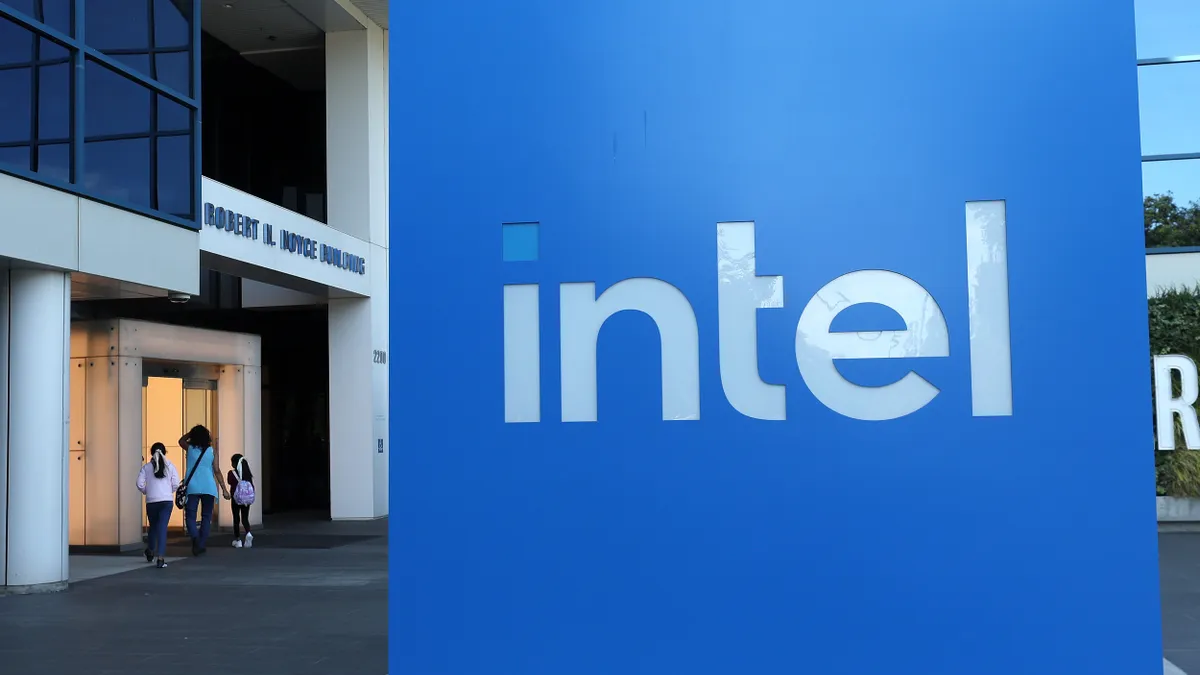Developing a new drug is a long, expensive process that comes with a high risk of failure, often because would-be medicines are unsafe or ineffective.
For companies specializing in cell or gene therapies, an equally pressing concern is figuring out how to reliably make their products. Unlike small molecule or antibody drugs, genetic medicines typically involve a variety of specialized parts woven together through a complex process.
"Ex vivo," or outside-the-body, treatments can involve a multi-week process for collecting, multiplying and modifying a patient's cells in a laboratory. Even the simpler "in vivo" therapies have multiple pieces, including engineered viruses and synthetic genetic material, that are challenging to produce at scale.
The approvals of a dozen cell- and gene-based medicines for cancer and inherited diseases in recent years has given young drugmakers a path to pursue. But most of those approvals were won by large pharmaceutical or biotechnology companies that invested heavily in manufacturing. Startups, by contrast, don't yet have that luxury.
Still, cell and gene therapy research is booming. More than 2,200 clinical trials testing these types of treatments were ongoing globally as of last year, according to the Alliance for Regenerative Medicine. The surge has often outstripped the capacity of large contract manufacturers, leaving startups facing waitlists that can stretch one to two years.
A growing group of new manufacturers aim to help. Since 2017, at least half a dozen companies have launched with plans to ease the "bottlenecks" slowing down aspiring cell and gene therapy developers. Many have been started by veterans of the young field and gotten the backing of top venture firms. Here's what they aim to accomplish and how their work is progressing:
What are the main bottlenecks in cell and gene therapy manufacturing?
Cell and gene therapies involve materials that aren't used in many of the other products the pharma industry is well-versed in producing.
Scientists design synthetic genetic material to deliver into patients, either via their own cells, benign viruses known as vectors or specially made bubbles of fat. Constructing these treatments is tricky even in a research setting, where small amounts of such material might be required for early experiments. But it's much harder for companies running clinical trials, or preparing for mass production.
Manufacturing delays can wreak havoc on young companies, causing them to miss milestones that could endanger future funding. Established gene therapy biotechs like UniQure or BioMarin Pharmaceuticals have spent years and millions of dollars to build their own plants. But startups and academic labs — where a number of the approved cell and gene therapies originated — can’t afford that.
“Academics have truly cutting-edge research, and I have been blown away by some of the creative ideas, novel modalities and breakthrough innovations that came about,” said Ran Zheng, the CEO of Landmark Bio, a Massachusetts-based company that caters to cell and gene therapy developers. “But that information needs to be translated into therapeutics, and this is the biggest, and probably the first, hurdle [startups] have to overcome.”
Turning to contract manufacturers like Thermo Fisher and Catalent can be a solution, but brings problems of its own. Transferring technology from a small lab to a larger organization can be arduous and require troubleshooting for glitches that arise in the process.
Big CDMOs may also prioritize more lucrative work with larger biotech and pharmaceutical firms. And they're struggling to meet the surging demand for cell and gene therapy manufacturing tools themselves.
Building up capabilities internally can be costly for startups. Viral vectors, for instance, are expensive to make and handle.
“You often see companies trying to own their own manufacturing and unfortunately, in this environment, if the product’s not successful, that's a heavy capital and operating expense to carry,” said Mike Paglia, a senior executive with ElevateBio, a richly funded startup that helps manufacture cell and gene therapies.
How are these startups trying to change that?
Rather than compete directly with larger CDMOs, some manufacturing startups aim to provide a more cost-efficient path for companies to develop in-house production capabilities. To appeal to younger biotechs that may need them, they are building relationships earlier and providing more services to attract first-time founders and small teams.
Many of these conversations take place long before an application to begin human testing, so these smaller manufacturers work to teach startups about raw material control strategies and set realistic timelines to gather early clinical data.
“Traditional CDMOs are like a kitchen, you'll give them a recipe and they make an entree,” said Zheng, who previously worked in manufacturing and operations at Orchard Therapeutics and Amgen. “That’s all they do. We're not like a kitchen where you just simply state the recipe. We actually ask our clients what ideas they have and we develop the recipe with them.”
Some clients start from near the beginning, working with these newer manufacturers from the moment they identify a lead candidate.
ElevateBio and Landmark Bio both help startups with laboratory studies to ensure that, down the line, they’re familiar with how to transfer their drugmaking technology to the companies that might eventually produce their therapies.
Paglia, who previously worked at Bluebird bio, said the biggest hurdle for him and his former colleagues was transferring their technology to contract manufacturers.
“Whether it was manufacturing our lentiviral vectors or cell therapy products, it took tremendous amounts of oversight to get those processes right because of the infancy of the industry,” he said.
Still, outsourcing to a dedicated manufacturer can save biotechs millions of dollars in the long term, Paglia said, allowing them to put that money toward additional clinical studies. That has meant steady demand for CDMOs, and created business for new startups trying to help.
Manufacturing startups have also attracted academics and nonprofits that struggled to get time with larger CDMOs. Landmark has worked with researchers who have received National Institutes of Health grants, for example.
Ultimately, improving manufacturing might give companies an opportunity to rethink how they price cell and gene therapies, which are some of the costliest medicines to make. The few companies that have reached market have noted these high costs in setting price tags that range from hundreds of thousands to millions of dollars.
Who are the startups in the space?
At least six biotech startups have launched since 2017 to address shortfalls in cell and gene therapy manufacturing.
The most richly funded, ElevateBio, has raised about $1.3 billion since it began working with drugmakers. It’s also spun out its own biotech startup with Boston Children’s Hospital to develop more convenient alternatives to current cancer cell therapies.
More recently, Ascend Cell & Gene Therapies in the U.K. emerged from stealth armed with $130 million in funding and led by industry veterans. It’s focused on adeno-associated viruses, a heavily used type of viral vector, and has acquired some of its capacity and technology from the struggling Freeline Therapeutics.
“AAV manufacturing is complex and needs teams that show real expertise and ownership,” said one of Ascend’s founding investors, Tim Funnell of Monograph Capital, in a statement on the company’s launch. “This led many advanced modality biotech developers to build their own internal CMC capabilities. However, these companies are now finding it difficult to sustain and fully utilize their facilities.”
There are smaller ventures, too. A pair of University of Pennsylvania researchers who worked on the cell therapy Kymriah and the gene therapies Zolgensma and Luxturna launched VintaBio in April. Months before in January, biotech startup creator Versant Ventures debuted Vector BioMed to help supply startups with the "lentiviral" vectors often used in ex vivo treatments.
Select list of startups specializing in cell, gene therapy manufacturing
| Company | Notable investors | Funding |
|---|---|---|
| ElevateBio | AyurMaya Capital, Matrix Capital, Softbank | Approx. $1.3B |
| Shape Therapeutics | NEA, Decheng Capital, Breton Capital | $147.5M |
| Ascend Cell & Gene Therapies | Monograph, Abingworth, Petrichor | $132.5M |
| Landmark Bio | Harvard University, MIT, Fujifilm, Alexandria Real Estate, Cytiva | $75M |
| VintaBio | Decheng Capital | $65M |
| Vector BioMed | Viking Global Investors, Casdin Capital | $15M |
SOURCE: Companies
What’s the status of their work?
With demand for more CDMOs at an all-time high, these startups are partnering with drugmakers straight out of the gate. Though many rely on capital infusions from venture firms, they also can generate cash from their work early on, bringing returns to investors well before a typical biotech might.
Landmark Bio had its first customer “even before we put a sign on the door,” Zheng said in October. In early June, it announced a partnership with InnDura, a new biotech company focused on “natural killer” cell research.
ElevateBio, having been around for some years, boasts a larger client list, noting in a May fundraising announcement that it added more than 15 new biopharmaceutical partners over the past year. Its subsidiary Life Edit Therapeutics is collaborating with large drugmakers like Novo Nordisk and Moderna.
VintaBio has a 22,500-square-foot facility in Philadelphia that’s now open for business, while Vector BioMed is working out of Gaithersburg, Maryland.
Shape Therapeutics is somewhat different, as it’s working on its own research, too. But it has also hinted at playing a manufacturing role, developing a new kind of cell line for producing adeno-associated viruses and indicating plans to build a factory where other companies can make their therapies.



